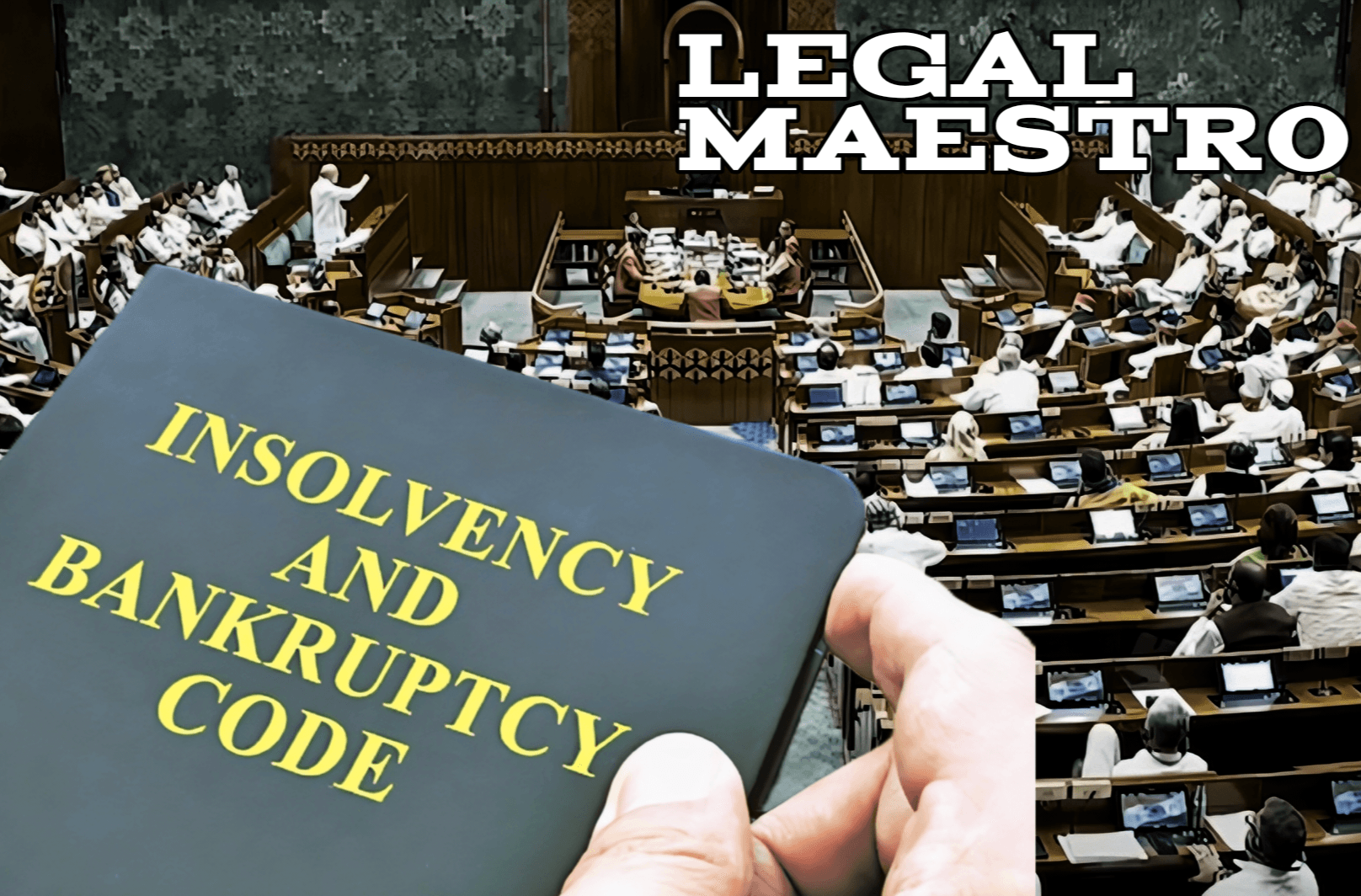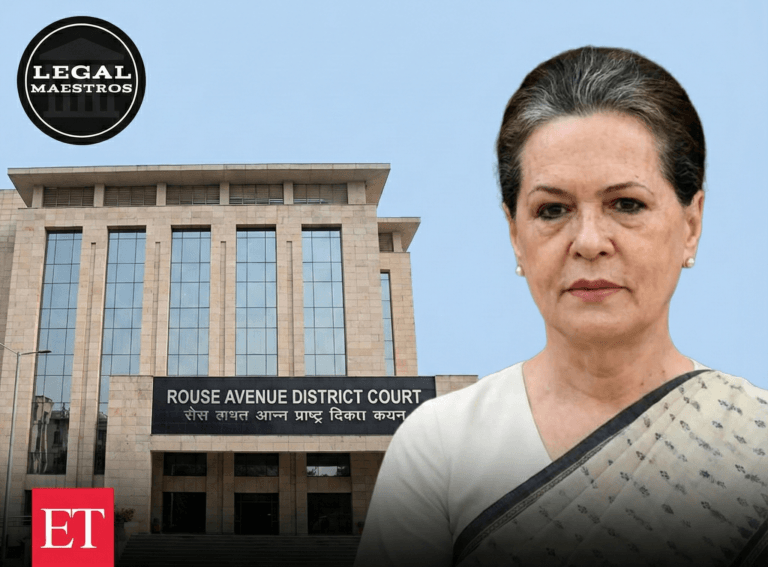
India’s attempts to revitalize troubled businesses and maximize value for creditors have been strengthened by the Insolvency and Bankruptcy Code, which has served as the foundation of these initiatives. One of the most important aspects of the law is the resolution plan, which describes the approach that will be taken to reorganize or sell a failing organization.
Currently, the legislation requires clearance from the Competition Commission of India for any plans that involve mergers or combinations that have the potential to harm market competition. In recent court interpretations, it has been held that this approval must be obtained before the CoC adopts any plan, which creates bottlenecks in the process.
In order to solve these difficulties, the administration is planning to introduce specific reforms during the upcoming session of Parliament that will take place during the rainy season.
For any queries or to publish an article or post or advertisement on our platform, do call at +91 6377460764 or email us at contact@legalmaestros.com.
For More Updates & Regular Notes Join Our Whats App Group (https://chat.whatsapp.com/DkucckgAEJbCtXwXr2yIt0) and Telegram Group ( https://t.me/legalmaestroeducators )
Contextual information regarding Section 31(4) and CCI Approval
A proviso that requires CCI clearance for resolution plans that contain “combinations” as defined under competition law was added to Section 31(4) of the Indonesian Business Code in 2018, which was updated to include the proviso.
The purpose of this condition is to prevent mergers that are anti-competitive and to protect consumer interests by ensuring that any change in the structure or ownership of a firm that is insolvent does not have a negative impact on market competition.
When it comes to mergers and acquisitions, the Competition Act gives the Competition Commission of India (CCI) the authority to examine proposed combinations and either prevent or alter those that have the potential to result in considerable market concentration. Despite the fact that problematic businesses are going through the process of revival or sale, the legislature wanted to protect the competitive landscape by establishing a connection between insolvency plans and the Competition Act.
Decision of the Supreme Court and Its Implications
A precedent-setting decision regarding the interpretation of the proviso to Section 31(4) was handed down by the Supreme Court at the beginning of 2025. According to the decision of the court, the consent of the CCI is required to be acquired before the CoC votes on and adopts any resolution plan that involves a combination.
This view placed a higher priority on the exact text of the statute than it did on practical reasons, highlighting the fact that regulatory compliance could not be delayed until after creditors had given their approval. However, the ruling also created procedural rigidity, which caught resolution applicants and insolvency experts off surprise.
While the decision did underline the significance of competition oversight, it also introduced the rigidity. since of the verdict, there was a lot of confusion on the ground since it created doubts about whether or not bids could be made to creditors without standing clearance from the CCI.
The Obstacles That Entrants of Resolutions Must Consider
When the Supreme Court’s view was taken into consideration, those who were seeking resolution found themselves in a precarious position. Even before submitting resolution plans to the CoC, they were required to approach the CCI for approval in order to ensure that their bids were preserved. Because to this sequence, additional time was required, additional legal and filing fees were incurred, and there was a risk of ambiguity if the CCI evaluations went longer than anticipated.
In several instances, prospective purchasers chose to withdraw from the insolvency process rather than to endure extended delays imposed by regulatory authorities. Creditors, on the other hand, were required to wait for clearance from the CCI before reviewing or approving any plan. This slowed down the resolution process and increased the danger of value erosion in assets that were in distress.
The Proposal of the Government to Modify the IBC
Since the Ministry of Corporate Affairs is aware of these concerns, it has developed modifications to Section 31(4) of the International Business Code. Clarification that CCI approval is essential but does not always need to come before CoC endorsement is the goal of the proposed modifications.
Instead, the CoC may provide its approval to resolution plans, but only under the condition that any combination aspects would be presented to the CCI for approval afterward. This amending bill, which will be tabled during the monsoon session of Parliament, will represent the intention of the government to reestablish the original equilibrium between the business wisdom of creditors and the protections put in place to protect competition.
The implementation of this legislative amendment is anticipated to provide insolvency practitioners and stakeholders with the much-required clarity they require.
Alterations that Might Be Made to Section 31(4)
The text of the proviso to Section 31(4) will be altered in accordance with the draft modification in order to make it possible for CoC approval to be granted prior to CCI clearance. The applicant is required to acquire CCI clearance “subsequent to” CoC endorsement but “prior to” filing the plan with the adjudicating body when a resolution plan comprises a combination.
This requirement will be specified in the new language. This sequencing guarantees that creditors are able to make decisions in a timely manner based on commercial and financial factors, while at the same time ensuring that regulatory permission is demanded prior to the implementation of a plan.
The amendment plans to shorten the insolvency process by dividing the approval steps into two distinct stages. This will be accomplished without sacrificing the oversight of competition.
Benefits that are anticipated to result from the amendment
For the purpose of reducing delays in resolution proceedings, the modification is anticipated to allow for the approval of the CoC to take place prior to the clearance of the CCI. It will no longer be necessary for bidders to deal with the predicament of attempting to obtain regulatory permission for a proposal that has not yet been reviewed by creditors.
Both the pre-CoC filing fees and the legal costs that are associated with early CCI submissions should be reduced as a result of the shift. In the field of insolvency, professionals believe that creditors will make decisions more quickly, which will result in more effective exits for companies that are experiencing difficulties and improved recovery rates for lenders.
Through the elimination of a procedural obstacle that can be avoided, the reform is intended to, in general, revitalize the environment of insolvency.
Matters of Concern and Criticism
Some people are concerned that granting CoC approval before CCI clearance will potentially impair competition safeguards, despite the fact that this idea has widespread support. Some people believe that creditors, who are primarily concerned with maximizing financial returns, may favor schemes that result in larger bids but at the same time represent greater hazards of competition.
The risk exists that anti-competitive deals could gain interim blessings from creditors, only to be disallowed later by the Competition Commission of India (CCI), resulting in the failure of the plan and additional uncertainty.
This would occur if regulatory inspection is delayed. A number of provisions for expedited CCI review deadlines and mechanisms for temporary plan implementation requirements are included in the amendment in order to reduce the likelihood of such risks occurring.
Timeline and Implementation of the Plan
Following the introduction of the amended bill, the provisions of the bill will be discussed and refined by Parliament. It is the intention of the administration to adopt the bill during the current session, and the President will then give his consent to the legal document.
It is highly probable that the modified Section 31(4) will go into force immediately upon notification, and it will continue to apply to all ongoing and prospective insolvency cases.
It will be necessary for professionals working in the field of insolvency to revise their standard operating procedures and plan templates in order to accommodate the new order of approvals. At the same time, it is anticipated that the CCI will establish guidelines in order to speed up the process of reviewing resolution plans. These rules would include specialized channels for files connected to insolvency.
Influence on the Procedures for Resolving Insolvencies
The revision is going to have an effect on the dynamics of the resolution of insolvency processes. Without the presence of regulatory concerns at the beginning of the process, creditors are able to concentrate on determining whether or not proposals are commercially viable.
Potential applicants for the resolution will reap the benefits of more transparent timeframes and predictable procedures, which will encourage a greater number of bids and participation.
There is a possibility that the lowered regulatory burden prior to the approval of the CoC will lessen entry barriers for smaller investors and buyers of niche assets. It is possible that the change will result in a more rapid closing of deals, an improvement in asset valuations, and a revitalized market for distressed assets. This will be accomplished by more effectively synchronizing insolvency rules and competition laws.
A pragmatic response to judicial interpretations that have complicated the insolvency landscape is represented by the proposed change to simplify the process of obtaining CCI clearance for resolution plans prior to the approval of the Code of Conduct.
Through the modification of Section 31(4) of the IBC, the government is attempting to achieve a better equilibrium between the autonomy of creditors and the oversight of competition. It is anticipated that the modification will hasten the settlement processes, reduce the costs for bidders, and enhance the outcomes of the recovery.
Although there are still issues over the inspection of delayed competition, there are built-in safeguards and accelerated CCI review procedures that are intended to address these concerns. This modification represents a significant step towards a corporate rescue process that is more effective, transparent, and robust. It comes at a time when India is continuing to refine its bankruptcy framework.




